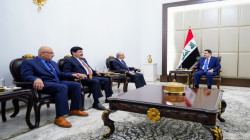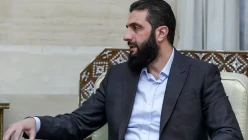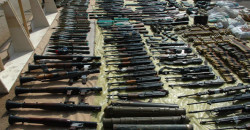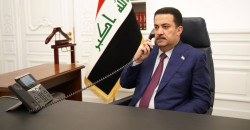"Sovereign immunity": Iraqi expert defends al-Sudani's meeting with al-Sharaa
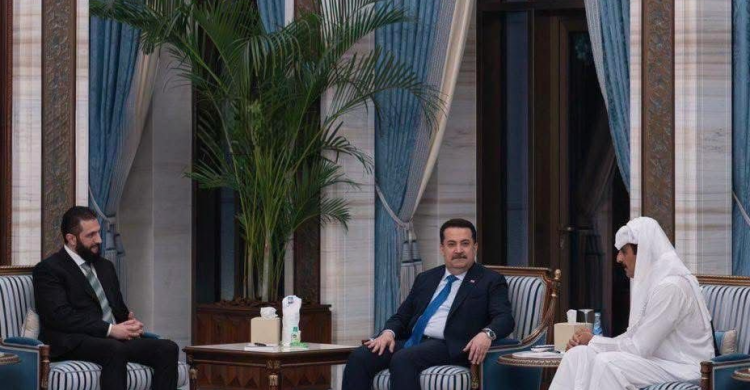
Shafaq News/ Iraqi Prime Minister Mohammed Shia al-Sudani's meeting with Syrian transitional President Ahmed al-Sharaa drew criticism, citing al-Sharaa's past in Iraq.
Al-Sharaa was previously linked to al-Qaeda operations in Iraq and is still subject to an arrest warrant issued by Iraqi authorities years earlier.
According to the Syrian presidency, the meeting focused on joint border security and field coordination, with both sides agreeing to strengthen intelligence cooperation, marking the first direct contact between al-Sudani and al-Sharaa.
However, legal expert Mohammed Jumaa told Shafaq News that under Iraqi and international law, “a sitting head of state cannot be prosecuted due to sovereign immunity,” effectively rendering any prior charges unenforceable. “The meeting was legally sound."
Iraqi sources claimed al-Sharaa had been detained by US forces between 2007 and 2008 but was released without a conviction or formal Iraqi legal involvement. A warrant was later issued without a court ruling, however, after detainees accused him of terrorism-related offenses.
Al-Sudani’s office has not commented publicly, but the prime minister confirmed earlier that al-Sharaa had been "officially" invited to attend the upcoming Arab League summit in Baghdad, scheduled for May 17.
Despite previously denying participation in sectarian violence in Iraq, al-Sharaa emphasized his group, Hayat Tahrir al-Sham (HTS)—formerly al-Nusra Front—had severed ties with al-Qaeda in 2016 and was now acting solely in line with “Syrian national interests.” He also denied any present affiliation with external organizations.
HTS continues to hold sway in parts of Syria’s northwest, particularly in Idlib, where it has shifted toward local governance. Earlier, US Assistant Secretary of State for Near Eastern Affairs Barbara Leaf said Washington had rescinded its reward for information leading to al-Sharaa's arrest.
The transitional president of Syria currently heads its armed opposition, which seized Damascus on December 8, forcing former President Bashar al-Assad to flee to Russia, where he was granted asylum.
